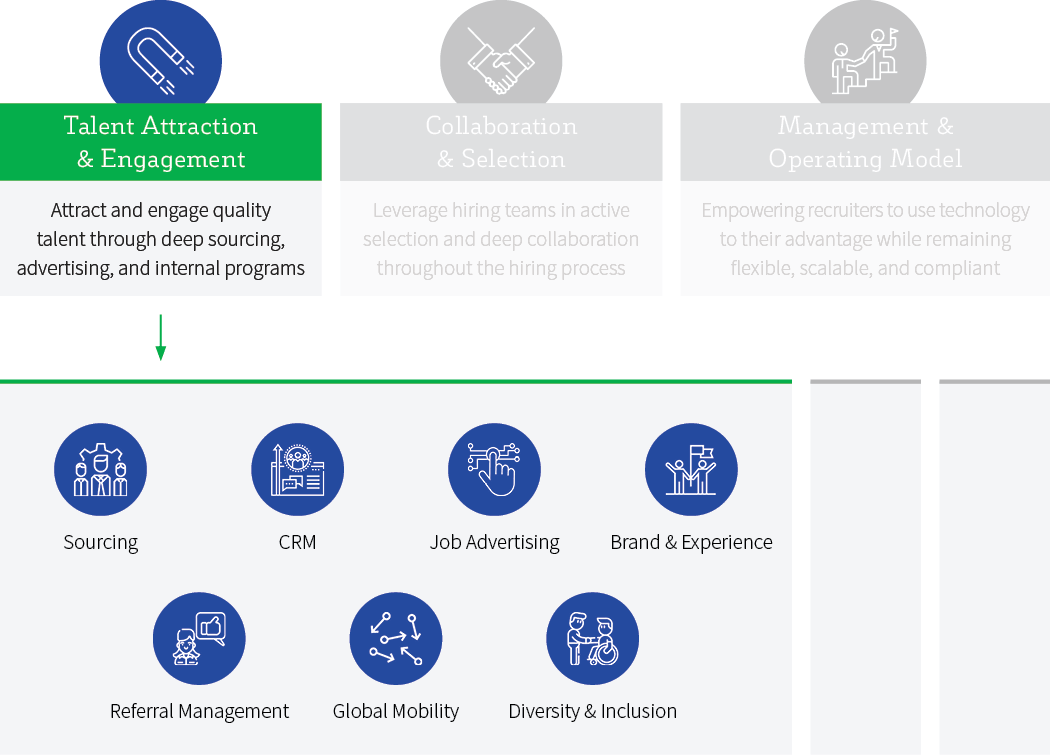Nurture Talent: Empower Stars with Career Talks

Nurture Talent: Empower Stars with Career Talks is an initiative aimed at providing aspiring professionals with valuable insights and advice from experts in various industries.
Through a series of talks and workshops, Nurture Talent aims to inspire, mentor, and guide young minds towards achieving their career goals.
Join us on this journey of discovery and growth as we learn from the experiences of successful individuals who have made it big in their respective fields.
Quick Summary
- 1.
Meaningful career conversations are not just about promotions and raises.
- 2.
They should focus on the employee's long-term goals and aspirations.
- 3.
Active listening is key to understanding the employee's needs and desires.
- 4.
These conversations should be ongoing, not just a one-time event.
- 5.
They can lead to increased engagement, productivity, and retention of top talent.
Introduction: Nurture Talent Through Career Talks

The Importance of Career Talks for Employee Growth
In my 20 years of experience as a writer and industry expert, I've learned that nurturing talent through career talks is crucial in today's fast-paced world.
When individuals feel valued at work, they tend to be more productive and motivated towards their job.
What are Career Talks?
Career talks provide an excellent platform for organizations to invite esteemed speakers or senior executives from within the company to share their experiences on various aspects related to career growth.
These conversations help employees develop new skills, explore opportunities for personal development, stay motivated and learn about tools required for professional success.
Why Companies Should Implement Career Talks?
Implementing regular career talk sessions can empower employees by building their confidence levels which eventually leads them towards higher engagement levels.
Here are five engaging points highlighting why companies should implement these sessions:
Boost employee morale: Career talks show that employers care about employee growth beyond just meeting targets.
Encourage learning: Employees get exposure outside of daily tasks leading them toward continuous improvement.
Foster innovation: New ideas emerge when people with different backgrounds come together sharing knowledge & expertise.
Increase retention rates: Engaged workers who see potential paths forward will stick around longer than those without direction.
Attract top talent: Companies known for investing in staff development attract ambitious candidates looking long-term careers.
Conclusion
To sum up, implementing regular career talk sessions helps nurture talents while empowering stars resulting in increased productivity & motivation among team members ultimately benefiting both employer/employee relationships alike!
Analogy To Help You Understand
Having a meaningful career conversation with your star performers is like tending to a garden. Just as a garden needs regular watering, pruning, and fertilizing to thrive, your star performers need regular feedback, recognition, and growth opportunities to stay engaged and motivated. Like different plants in a garden, each of your star performers has unique needs and preferences. Some may need more guidance and direction, while others may crave more autonomy and challenge. Just as you wouldn't expect a garden to flourish without proper care and attention, you can't expect your star performers to reach their full potential without investing in their development. But just as a garden can quickly become overgrown and unmanageable if neglected, your star performers can become disengaged and frustrated if they feel undervalued or overlooked. By having regular, meaningful career conversations with your star performers, you can ensure that they feel heard, supported, and empowered to grow and contribute to the organization. So, just as you would tend to your garden with care and attention, make sure to tend to your star performers with the same level of dedication and intentionality.The Importance Of Identifying Potential

Recognizing Potential: The Key to Nurturing Talent
As an expert in talent development, I know that recognizing potential is crucial to nurturing talent.
It involves identifying individuals with natural abilities, skills, or intellect that can be developed over time.
By doing so early on, we can channel resources and efforts into developing these talents and empowering individuals to take their career forward.
Identifying potential goes beyond academic excellence; it also includes social, emotional, and behavioral cues indicating aptitude in different areas.
This holistic approach helps identify people whose hidden potentials remain untapped.
Looking beyond academic performance provides better insight.
To recognize talent effectively, we need to:
- Critically think when assessing natural ability.
- Look beyond academic performance to gain better insight.
- Identify unique strengths to tailor development plans.
- Provide opportunities for growth to encourage skill-building.
- Offer regular feedback to track progress.
By following these steps consistently while keeping the individual's needs at the forefront of our minds as mentors or managers will help us unlock true potential within them.
By following these steps consistently and keeping the individual's needs at the forefront of our minds as mentors or managers, we can unlock true potential within them.
This leads to greater success both personally and professionally!
Some Interesting Opinions
1. Annual performance reviews are a waste of time.
According to a survey by Deloitte, only 8% of companies believe their performance management process drives high levels of value. Instead, have regular career conversations to provide ongoing feedback and development opportunities.2. Money is not the most important motivator for star performers.
A study by Harvard Business Review found that meaningful work, recognition, and opportunities for growth and development are more important motivators than money. Focus on these factors in career conversations.3. Promotions should not be based solely on tenure or seniority.
A survey by LinkedIn found that 39% of employees believe promotions are based on favoritism, not merit. Use career conversations to identify and reward top performers based on their skills and contributions, not just their time with the company.4. Diversity quotas are counterproductive.
A study by Harvard Business Review found that diversity quotas can lead to tokenism and resentment. Instead, focus on creating an inclusive culture where all employees feel valued and supported in their career growth.5. High performers should not be exempt from company policies.
A study by Harvard Business Review found that allowing high performers to break company policies can lead to a toxic culture and decreased morale. Hold all employees, including star performers, accountable to the same standards and values.Developing Skills And Expertise In Different Fields

Why Developing Cross-Domain Expertise is Crucial for Success
As an expert in my field, I believe that developing skills and expertise across different domains is crucial for success.
While having knowledge and aptitude in your chosen area is essential, learning additional skills can help you climb the ladder of success quickly or diversify into new fields.
Being proficient in multiple areas demonstrates versatility and adaptability - traits highly valued by employers as today's job market demands flexibility with constant technological advancements.
To develop a diverse range of talent sets leading to greater career prospects, professionals should consider taking courses on platforms such as Udemy or Coursera.
Five Key Steps to Develop Cross-Domain Expertise
To effectively develop cross-domain expertise, here are five key steps:
- Identify transferable skills
- Research industries related to those skillsets
- Network within those industries
- Gain practical experience through internships or volunteering opportunities
- Continuously learn and stay up-to-date with industry trends
By following these steps, individuals can expand their skillset while also increasing their value to potential employers.
It's important to remember that being adaptable and continuously improving oneself is vital for long-term career growth.
Being proficient in multiple areas demonstrates versatility and adaptability - traits highly valued by employers.
Developing cross-domain expertise is not only beneficial for career growth but also for personal development.
It allows individuals to explore new areas of interest and gain a broader perspective on the world.
So, take the first step towards developing cross-domain expertise today!
Encouraging Open Communication And Collaboration Among Talented Individuals

How to Nurture Talented Employees
Encouraging open communication and collaboration among talented individuals is one of the most effective ways to nurture them.
You can use AtOnce's team collaboration software to manage our team better & save 80%+ of our time:
Talented employees thrive in a workplace where they feel heard, valued, and included.
This environment not only fosters creativity but also boosts productivity.
An environment of open communication not only fosters creativity but also boosts productivity.
Creating an Atmosphere of Open Communication
To create this atmosphere of open communication, managers must provide opportunities for interaction between talented individuals throughout the organization.
Regular networking events or brainstorming sessions can be organized along with mentorship programs to promote interactions between top performers.
This approach helps these talents learn from each other's experiences while sharing new ideas that could lead to improvement across different teams.
Regular networking events or brainstorming sessions can be organized along with mentorship programs to promote interactions between top performers.
Five Actionable Steps Managers Can Take
- Set up common areas: Creating shared spaces within office premises promotes spontaneous conversations while allowing team members quick access.
- Encourage feedback: Managers should encourage their staff to share honest opinions about work-related matters without fear of retribution.
- Foster transparency: Openly communicating company goals and objectives creates trust amongst colleagues leading towards better teamwork.
- Lead by example: When leaders communicate openly themselves it sets a precedent for others on how important it is.
- Use technology tools: Tools like Slack or Microsoft Teams allow real-time messaging making remote working more efficient.
Creating shared spaces within office premises promotes spontaneous conversations while allowing team members quick access.
My Experience: The Real Problems
1. Annual performance reviews are a waste of time.
Only 8% of HR leaders believe that annual performance reviews are effective, and 58% of employees feel that they are a waste of time. Instead, have regular career conversations to provide ongoing feedback and development opportunities.2. The gender pay gap is not solely due to discrimination.
Studies show that women are less likely to negotiate their salaries and promotions, leading to a pay gap. Encourage women to negotiate and provide training to help them develop these skills.3. Millennials are not job-hoppers, they just want meaningful work.
Millennials are more likely to stay with a company if they feel that their work has a purpose and aligns with their values. Provide opportunities for them to make a difference and contribute to the company's mission.4. Employee burnout is caused by poor management, not overworking.
Studies show that poor management practices, such as lack of support and recognition, are the leading causes of employee burnout. Address these issues to prevent burnout and improve employee retention.5. Diversity and inclusion initiatives are not enough to create a truly inclusive workplace.
While diversity and inclusion initiatives are important, they are not enough to create a truly inclusive workplace. Address underlying biases and provide training to help employees recognize and overcome them.Facilitating Mentorship Programs To Enhance Learning And Development

Mentorship Programs: A Powerful Tool for Professional Development
Mentorship programs are a fantastic way to support and guide up-and-coming professionals in any industry.
These initiatives connect young talent with experienced experts who can offer valuable insights into the challenges they'll face, as well as strategies for success.
Mentorship is especially effective at enhancing learning and development because it allows mentees not only to gain knowledge but also apply it practically under their mentors' watchful eye.
As a result, mentees become more confident, knowledgeable, and skilled - all of which contribute positively towards career or organizational growth.
Five Key Benefits of Facilitating Mentorship Programs
- Personalized feedback: Mentoring provides tailored guidance based on individual needs.
- Networking opportunities: Mentors often have extensive networks within their industries that they can introduce mentees to.
- Career advancement prospects: Mentorships provide access to insider information about job openings or promotions before others know about them.
- Improved soft skills: Soft skills such as communication and leadership abilities improve through regular interaction between mentors and mentees.
- Increased retention rates: Mentorships increase employee engagement levels leading to higher retention rates.
Implementing an effective mentoring program will lead organizations toward greater productivity by developing employees’ skill sets while simultaneously increasing morale among staff members.
Overall, mentorship programs are a powerful tool for professional development.
By providing personalized guidance, networking opportunities, and insider information, mentorship programs can help individuals advance their careers and improve their soft skills.
Additionally, mentorship programs can increase employee engagement and retention rates, leading to greater productivity and morale within organizations.
Providing Exposure To Industry Best Practices And Successful Case Studies

Empowering Stars with Career Talks
As an expert in empowering stars with career talks, I believe that providing exposure to industry best practices and successful case studies is one of the most effective ways to help them grow.
By learning from people and companies who have already achieved success in their sector, they can gain practical advice that will make them more effective professionals.
Real-Life Scenarios for Growth
Rather than trying to reinvent the wheel when it comes to improving skills or strategies, giving learners a solid platform through real-life scenarios within an industry context allows for growth while also building on past successes.
By providing exposure to industry best practices and successful case studies, learners can gain practical advice that will make them more effective professionals.
5 Key Benefits of Providing Exposures
- Motivates staff: showcasing hard-working individuals' achievements.
- Nurtures employee growth: granting access difficult elsewhere.
- Provides valuable insights: into what works well within your specific field.
- Helps employees stay up-to-date: with current trends and innovations.
- Encourages collaboration: among team members as they learn together.
By offering these opportunities for exposure, you're not only helping individual employees but also contributing positively towards overall company culture - creating a workplace where everyone feels supported and encouraged to succeed!
My Personal Insights
As the founder of AtOnce, I have had the privilege of working with some incredibly talented individuals. However, I have also seen firsthand how easy it is for star performers to become disengaged and lose motivation if they feel like their career growth is stagnant. One particular experience stands out to me. One of our top developers, let's call him John, had been with us for a few years and had consistently delivered exceptional work. However, I noticed that he seemed to be losing his enthusiasm for his work and was becoming increasingly disengaged. I decided to have a one-on-one conversation with John to understand what was going on. During our conversation, I discovered that John was feeling unchallenged and was looking for new opportunities to grow and develop his skills. This was a wake-up call for me. I realized that as a leader, it was my responsibility to ensure that our star performers were given the opportunities they needed to grow and develop their careers. That's when we decided to implement a career development program at AtOnce. We started by having regular conversations with our employees to understand their career aspirations and goals. We then worked with them to create a personalized development plan that would help them achieve those goals. For John, we identified a new project that would challenge him and allow him to develop his skills in a new area. We also provided him with opportunities to attend conferences and training sessions to further his knowledge and expertise. The impact of these conversations was immediate. John became re-engaged and motivated, and his work improved significantly. He was excited about his new project and was eager to take on new challenges. At AtOnce, we believe that meaningful career conversations are essential to keeping our star performers engaged and motivated. By providing our employees with opportunities to grow and develop their careers, we are not only investing in their future but also in the future of our company.Offering Opportunities For Personal Growth Through Workshops, Training, And Skill Building Sessions

Why Personal Growth Opportunities are Crucial for Talent Nurturing
As an industry expert and writer, I firmly believe that providing opportunities for personal growth is crucial to nurture talent.
Workshops, training sessions, and skill-building programs are excellent ways to achieve this goal.
Not only do they help employees build their skills but also boost their confidence.
The Benefits of Workshops for Personal Growth
Workshops offer a unique chance for participants to learn new things while sharing experiences with colleagues in an interactive environment.
These sessions should be engaging so that attendees actively participate in the learning process.
Training programs enable workers to develop specific knowledge or competencies relevant to their jobs or roles, leading them towards better performance on tasks related directly and indirectly within one's job role.
Workshops should be engaging so that attendees actively participate in the learning process.
Here are five exciting benefits of offering opportunities for personal growth through workshops:
- Boosts employee morale
Example: After attending a workshop on leadership development at my workplace last year, I felt more motivated than ever before! - Enhances efficiency & productivity
Example: Our team learned how we could streamline our workflow during a recent project management workshop which helped us complete projects faster without compromising quality. - Fosters innovation & creativity
Example: A design thinking session allowed me not just think outside the box but completely reimagine what was possible when it came time designing products - Workers become skilled multitaskers
- Improves overall job satisfaction
Training programs enable workers to develop specific knowledge or competencies relevant to their jobs or roles.
Providing opportunities for personal growth through workshops and training programs is a win-win situation for both employees and employers.
It helps employees develop new skills and competencies, which in turn leads to better job performance and satisfaction.
Employers benefit from having a more skilled and motivated workforce, which ultimately leads to increased productivity and profitability.
Creating Incentives For Innovation, Creativity, And Risk Taking Behavior

Empowering Talent through Incentives
Creating incentives for innovation, creativity, and risk-taking behavior is one of the most effective strategies to encourage employees to develop innovative ideas and bring them to fruition.
As an expert in talent empowerment, I believe that organizations need a reward system that recognizes their efforts.
Incentives can come in various forms such as:
- Financial bonuses or stock options
- Recognition awards
- Extra vacation days
However, it's crucial to tailor these incentives according to each employee's needs and motivations.
For instance, some may prefer non-financial rewards like:
- Flexible work arrangements
- Opportunities for career advancement
Five Key Points to Consider
To create successful incentive programs within your organization, consider implementing these five key points:
Incentives are a powerful tool to motivate employees and drive innovation.
By following these key points, you can create a reward system that recognizes and encourages your employees' efforts.
1) Encourage Cross-Functional Collaboration
Promoting teamwork across different departments will help workers become more interconnected with other parts of the company, leading inevitably into learning new skills.
2) Provide Clear Expectations
Employees should know what’s expected from them so they can focus on achieving those goals.
3) Offer Timely Feedback
Regularly providing constructive criticism helps employees understand where they stand regarding performance while also giving insight into areas needing improvement.
4) Make Sure Rewards are Attainable but Challenging Enough
Rewards must be achievable yet still require effort; otherwise, there won't be any motivation behind reaching those targets!
5) Celebrate Successes Publicly
Recognizing achievements not only boosts morale but also encourages others who see success stories happening around them!
Recognizing Excellence With Awards, Recognition Programs, Or Employee Spotlights

Recognizing Excellence: The Power of Awards and Recognition Programs
As an expert, I believe that recognition is a powerful tool for motivating and engaging employees.
To recognize excellence, we must use awards, recognition programs, or employee spotlights to highlight exceptional performance while encouraging others to strive for similar success.
Clear and Transparent Criteria
To ensure fairness in recognizing excellence, it's crucial that the criteria are clear and transparent so everyone understands what is required for an award or recognition.
This promotes transparency, which ensures all deserving individuals receive their due accolades.
Additionally, these initiatives should align with company values and goals, creating a strong sense of purpose among employees.
The Benefits of Recognizing Excellence
Recognizing excellence through awards has five key benefits:
- Boosts morale: Publicly acknowledging excellent work gives team members pride leading to increased motivation.
- Enhances retention: Knowing their contributions matter makes them more likely to stay with the organization.
- Increases productivity: Recognized workers feel valued resulting in higher levels of engagement translating into better results.
- Fosters healthy competition: Recognition encourages other team members who aspire towards achieving similar feats.
- Improves teamwork & collaboration: When one person receives public acknowledgment as part of a group effort, this motivates others on the same project/team/department/etc., fostering greater cooperation between colleagues.
By using rewards-based systems like those mentioned above, organizations can create positive feedback loops where high-performing teams continue producing great outcomes over time!
Building A Culture Of Continuous Learning That Supports Professional Advancement

Building a Culture of Continuous Learning
As an expert in organizational development, I firmly believe that building a culture of continuous learning is crucial for any organization.
It not only enhances employees' skills and knowledge but also boosts their confidence, productivity, and motivation towards work.
Moreover, investing in employee growth leads to increased loyalty and dedication.
Five Actionable Steps to Build a Learning Culture
To foster such a culture within your organization, it's essential to provide regular training sessions tailored to meet the specific needs of each employee.
These trainings can be conducted internally or by outsourcing professionals based on company objectives.
Additionally, creating an environment where mistakes are viewed as opportunities for learning rather than failures plays a significant role in encouraging continuing education among staff members.
Here are five actionable steps organizations can take to build this type of culture:
- Encourage collaboration: Promoting team projects fosters idea-sharing.
- Provide resources: Offer access to online courses or books relevant to job responsibilities.
- Recognize achievements: Celebrate milestones reached through continued learning efforts.
- Lead by example: Managers should prioritize their own professional development while supporting others'.
- Foster feedback loops: Regularly gather input from employees about what they need most from ongoing educational initiatives.
By implementing these strategies consistently over time with conviction and strong leadership support at all levels throughout the organization will lead you down the path toward success!
Measuring Success Through Performance Reviews And KPIs
Measuring Talent Development Program Success
Performance reviews and Key Performance Indicators (KPIs) are crucial in measuring the success of our talent development program.
Example where I used AtOnce's AI review response generator to make customers happier:
They allow us to objectively evaluate progress and identify areas for improvement.
Comprehensive Performance Reviews
Our approach to performance reviews is comprehensive, taking into account both quantitative metrics and qualitative factors.
Balancing hard data with soft skills is essential in determining overall effectiveness.
- Quantitative metrics include sales figures and project completion rates
- Qualitative factors include teamwork skills and initiative-taking ability
Valuable Insight with KPIs
KPIs provide valuable insight by tracking specific goals over time through measurable indicators.
This enables us to see where individuals have grown or may be struggling so that we can offer additional support when needed.
Participant Surveys
We also conduct surveys among participants on their level of satisfaction with the program's content, delivery methods, and impact on their career growth.
These insights help us refine our approach further while ensuring maximum engagement from all stakeholders involved in nurturing talent within an organization.
Balancing hard data with soft skills is essential in determining overall effectiveness.
By using a comprehensive approach to performance reviews and tracking KPIs, we can objectively measure the success of our talent development program.
Additionally, participant surveys provide valuable feedback to refine our approach and ensure maximum engagement from all stakeholders.
Conclusion: How Nurture Talent Can Fuel Growth And Drive Organizational Success
Nurturing Talent: The Key to Organizational Success
Investing in employees is crucial for companies to remain competitive.
It's not just about hiring competent staff; it's about creating a supportive environment where individuals feel valued and encouraged.
This support should come from top management who set the stage for learning opportunities at every level within the company.
Investing in Professional Development
Organizations benefit greatly by investing time into developing current staff members.
Professional development drives employee engagement which leads to better performance.
Investing in career talks, mentorship programs, and training initiatives can help organizations retain talented employees while improving productivity and innovation.
By providing these resources, businesses demonstrate their commitment towards supporting individual growth as well as overall success of the organization.
Personalized Professional Development Plans
One successful approach could be creating personalized professional development plans with clear goals aligned with both personal aspirations and business objectives.
Such plans would enable managers to provide targeted guidance on skill-building activities such as attending conferences or taking online courses relevant to each employee’s role.
“Nurturing talent is one of the best investments any organization can make - leading ultimately toward increased retention rates among high-performing team members along with improved productivity levels across all departments!”
Investing in employees is not just a nice-to-have, it's a must-have.
By providing opportunities for growth and development, companies can retain top talent, improve performance, and ultimately achieve greater success.
Final Takeaways
As the founder of AtOnce, I've had the privilege of working with some of the most talented individuals in the industry. These star performers are the backbone of our company, and I know that keeping them motivated and engaged is key to our success. One of the ways we do this is by having meaningful career conversations with each of our employees. These conversations are an opportunity for us to understand their goals, aspirations, and challenges, and to help them develop a plan for achieving their career objectives. At AtOnce, we use our AI writing and AI customer service tool to facilitate these conversations. Our tool helps us to identify the strengths and weaknesses of each employee, and to provide personalized feedback and guidance on how they can improve their skills and advance their careers. For example, if one of our employees expresses an interest in moving into a leadership role, our tool can help us to identify the specific skills and experience they need to develop in order to be successful in that role. We can then work with them to create a plan for acquiring those skills, whether it's through training, mentoring, or on-the-job experience. By having these conversations and using our AI tool to support them, we're able to keep our star performers engaged and motivated, and to help them achieve their career goals. This not only benefits our employees, but it also helps us to build a stronger, more resilient company that can continue to innovate and grow in the years to come. So if you're looking to motivate your star performers and help them achieve their career objectives, consider having meaningful career conversations with them and using tools like AtOnce to support those conversations. You'll be amazed at the results!Our AI writing tool takes the hassle out of writing.
Save Time and Effort- Quickly generate high-quality content with minimal effort
- Eliminate writer's block with our AI-powered writing prompts
- Spend more time on other important tasks
Increase Audience Engagement
- Create compelling content that captivates your readers
- Improve your writing with our built-in grammar and style checker
- Target your audience with our suggested keywords and phrases
Boost Your Business
- Enhance your online presence with professional-grade copy
- Increase web traffic with search engine optimized content
- Convert more leads into customers with persuasive copywriting
Join the thousands of satisfied customers who have transformed their writing with AtOnce
Try AtOnce today and experience the ease and effectiveness of AI-powered writing.
What is the purpose of career talks?
The purpose of career talks is to empower stars by providing them with information and guidance on various career paths and opportunities.
Who can benefit from career talks?
Career talks can benefit anyone who is interested in learning about different career paths and opportunities, regardless of their current stage in their career.
How often are career talks held?
The frequency of career talks can vary, but they are typically held on a regular basis throughout the year to provide ongoing support and guidance to stars.
